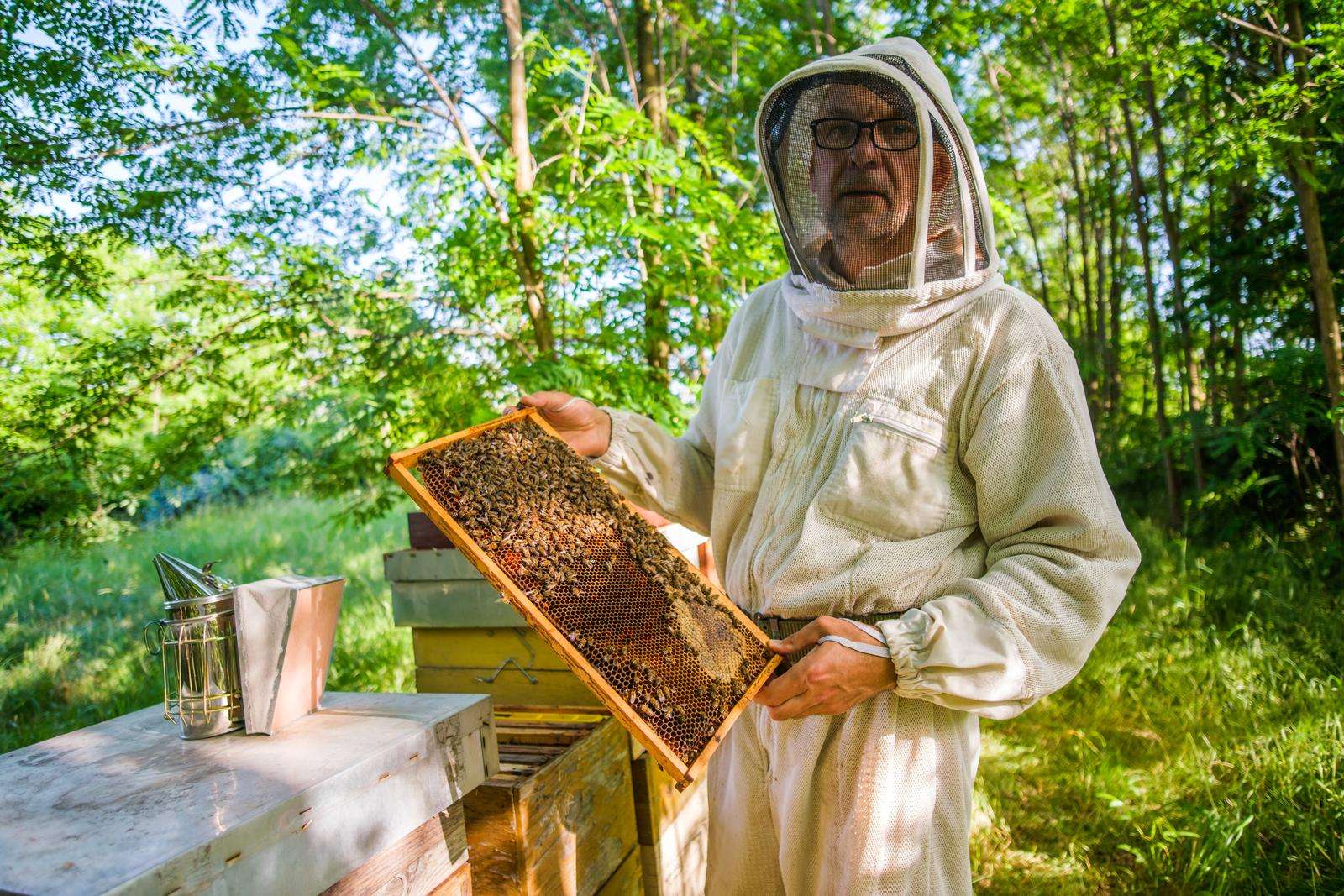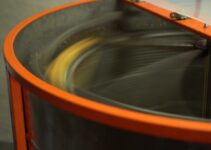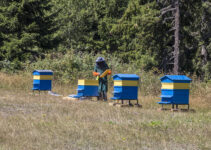Treatment-free beekeeping is a topic that frequently pops up among beekeepers, especially in our modern age, where people’s awareness of health issues and natural methods is heightened. What exactly is treatment-free beekeeping, and is this something you should aspire to in your beehives?
Treatment-free beekeeping avoids chemical treatment of bees and beehives in response to bee diseases and pest infestations. It is a good idea in an ideal world, but not always the most practical, especially in areas troubled by common beekeeping issues. Some local laws require the treatment of infested hives.
Treatment-free beekeeping is an ideal that some beekeepers have introduced in their beekeeping operations. Before you decide you like the idea, you need all the information, including the risks and the legal implications, before trying this strategy in your apiary.
What Is Treatment-Free Beekeeping?
Treatment-free beekeeping is essentially not treating bees and beehives for pests and diseases in the hives with chemical means.
The chemicals used to treat various ailments in the hive infiltrate into the beeswax, honey, and other products that come out of the hive.
Chemicals used to treat pests, such as varroa mites, are insecticides, which essentially contaminate the hive with toxins.
There is no treatment for pests and diseases in a beehive that leaves the bees unscathed since the chemicals used are harmful to insects, which includes bees. The chemicals simply kill more of the pests than the bees, and the trade-off bee losses are deemed acceptable to get rid of the pests.
Treatment-free beekeeping is sometimes called natural beekeeping, but this is not entirely accurate. There is very little that is natural about the way we keep bees.
We give them artificial housing and frames to control how they build the honeycomb, and the beekeeper interferes with natural processes, such as swarming, to ensure the bees do what we want them to do.
Treatment-free beekeeping is the more accurate term for chemical-free beekeeping since bee farming is not a natural process.
We can, as beekeepers, try to keep our beekeeping as natural as possible to limit our impact on the bees and improve the products that come out of our hives. This is where treatment-free beekeeping fits into the picture.
In my opinion, we should take the distinction even further and call it chemical-free beekeeping since we can use mechanical means to treat some problems in the hive without contaminating the bees and hive products.
Many hardline treatment-free proponents among beekeepers consider mechanical treatment of issues in the hive as a form of treatment and will discard these as options for hive treatment as well.
Is Treatment-Free Beekeeping a Good Idea?
Why is treating beehives becoming such a topic of contention, causing many people to opt for treatment-free beekeeping in their apiaries?
The cons of treating beehives with chemicals include the following.
- Weaker bee genetics. If we eliminate the problems of pests and disease in the hive, the bees will never learn to tackle these problems themselves or breed bees resistant to these issues.
- Chemical-resistant pests and diseases. Some pests and diseases survive the treatments in the hive and adapt to breed generations that are resistant to these treatments. This is much the same way that we see antibiotic-resistant diseases in humans becoming more common due to indiscriminate antibiotic use.
- Chemical contaminants in beehive products. The products that come out of the hive are consumed by humans, used in cosmetics that go on our skin, and in various other ways that result in human exposure to these toxins.
Given the potential harm of chemical treatments in beehives, does this mean that treatment-free beekeeping is a good idea and the way we should all be keeping bees?
The organic farming movement is another example of where there has been a drive toward a treatment-free form of producing food. While this method of farming in normal farming has become established, it is a relatively new concept in beekeeping.
As with any new strategy, there are causes and effects, pros and cons, and it will take time for an effective standard to become apparent.
Pros Of Treatment Free Beekeeping
There are advantages to implementing treatment-free beekeeping, which a growing number of beekeepers believe are enough to change to this way of keeping bees.
The following are the main advantages of treatment-free beekeeping.
- Breeding stronger bees. Allowing the bees to overcome pests and diseases on their own will eliminate weaker genetics and allow only bees with increased resistance to pests and diseases to survive.
- Chemical-free beehive products. Eliminating treatments that introduce toxins into the hive reduces the risk of toxins permeating through the hive and contaminating every product the beehive produces. This strategy makes for healthier food and cleaner hive products we can sell to our customers.
Cons Of Treatment Free Beekeeping
Going treatment free comes at a cost, which many inexperienced beekeepers may not be aware of when they start beekeeping and choose to go treatment-free.
The following are the main cons of treatment-free beekeeping.
- A high death rate in bee colonies. If your hives become infected with a disease or pests, you are likely to suffer heavy losses in the bee colony. If the problems occur close to winter, you will likely lose the entire colony.
- The spread of disease and pest infestations. When a colony becomes infested in your apiary, it will likely spread to other colonies in the apiary unless swift measures to isolate the problem colony are taken. No treatments can also lead to pests and diseases spreading rapidly across the country. This can affect bee populations and the entire beekeeping industry.
Local Laws And Treatment Free Beekeeping
In some areas where bee pests and diseases have become a severe problem, you may not have a choice in going treatment-free with your beekeeping.
You will have the choice not to treat your bees, but if your apiary site has a colony that becomes infested with certain diseases or pests, you may be required by law to treat the colony with prescribed measures or destroy the colony completely.
Authorities put these measures in place to protect the bees, which are important pollinators of food crops, and to protect the beekeeping industry, which may be a key income generator in the region.
Should You Adopt Treatment Free Beekeeping?
Hobbyist beekeepers are generally the first to adopt treatment-free beekeeping because if they lose a colony or two, it does not impact them financially.
Commercial beekeepers may lose their business and livelihood if they implement treatment-free beekeeping principles.
Treatment-free beekeeping is also difficult for new beekeepers to start with as a strategy because a beekeeper using this method must be experienced enough to notice problems in the hive early. Non-chemical action can then be taken to rectify the problem in the hive and contain the infestation or infection.
Treatment-free beekeeping also requires much more discipline in beekeeping operations, such as sourcing bees from proven sources, diligent cleaning of equipment when moving between different apiary sites, and learning new methods to control problems.
I am an advocate of treatment-free beekeeping, but I have the privelege of living in a region that is not troubled by many of the problems that other beekeepers face.
I use mechanical means of reducing pests in hives and practice principles that promote strong colonies to limit the effects of bee diseases. Sometimes the only choice is to destroy a colony to preserve the integrity of the other bees in the apiary and prevent the need for chemical intervention.
New products are coming out on the market that are less harmful to bees and people, but it will take time for the long-term effects of these products to be measured.
A balanced approach should be taken as we, as beekeepers, negotiate this minefield and learn better ways of beekeeping that benefit us, the bees, and the environment, without causing the collapse of an industry.
Conclusion
Treatment-free beekeeping is a choice that each beekeeper must make for themselves. While it is the ideal that all beekeepers strive for, sometimes it is not a practical approach in the interest of cubing the rampant spread of pests or bee-related diseases.
Treatment-free beekeeping takes more effort and time investment in beekeeping, but I am of the view that those that can choose this path should do so or use a balanced approach and treat each incident on a case-by-case basis and take the best possible action for that circumstance.
References
Writer’s personal experience
https://www.perfectbee.com/beekeeping-articles/outside-the-swarm/treatment-free-beekeeping
https://www.keepingbackyardbees.com/treatment-free-beekeeping-explained/
https://www.beepods.com/join-treatment-free-beekeepers/
https://www.honeybeesuite.com/so-you-want-to-be-treatment-free/




